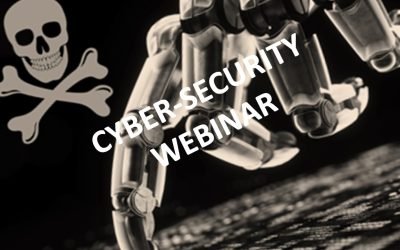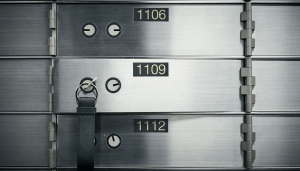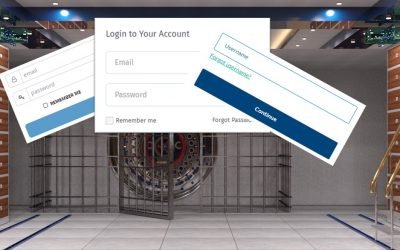The Trillion dollar industry
At the time of writing, the Waikato DHB cyber-attack is ongoing. The government is refusing to pay the ransom as a point of principle, and it looks like every possible tool at their disposal is being used to try to recover the situation.
Should they just pay the ransom? Or should the government go further and make it illegal to pay ransoms in New Zealand? That’s the question that Minister Kris Faafoi is having to assess at the moment. DHB attack: Why Justice Minister Kris Faafoi won’t make it illegal to pay a cyber-ransom – NZ Herald
Cyber crime is big business. We’ve called it organised crime in previous articles and we’re happy to stick with that. These organisations recruit the best and brightest out of the top universities, and give them both the latest tools and time to wreak havoc. Their recruits are paid astronomical sums to work for them, overcoming any moral objections with immorally large pay checks. These paychecks are funded by the proceeds of previous hacks. Every time they are paid, their war chest is strengthened. For example, we recently saw the Colonial Pipeline in the eastern US get hacked for 75 bitcoins (just under US$4M) which went to a criminal group called ‘Darkside”.



So, will cutting off payments stop their attacks by removing the incentive?
These criminals are smart and highly motivated. They seem to have no conscience but plenty of greed. Waikato is not only the hospital being brought down – there was a huge wave of hospital attacks in the US in October, just a few months ago – Several hospitals targeted in new wave of ransomware attacks – CNNPolitics.
I don’t know how Waikato DHB got infected, but the rumour is that it was from phishing attacks onto machines that weren’t fully patched up to date. We don’t know if that is true, but it is a common attack vector. Once a hacker gets into a system, they often hold back and try to dig further looking for more vulnerabilities they can exploit. The more damage they can cause, the more ransom they can demand, so they will often use one vulnerability to find the next, and so on until they finally have enough to bring the house down.
Security is all about layers. There is NO way to prevent attacks, and it is impossible to guarantee that any system is invulnerable. We saw that with the recent Hafnium attack where a vulnerability was exploited before patches were available to block it. But the more layers of security, the harder you make it, and you reduce the scope of any harm.
Today, even if you have the best backups and can recover the system, the hackers then threaten to release the data you hold to media or competitors. In the case of the Waikato DHB, it is being reported that personal data is being released to media by the hackers to increase pressure, even as they fail to stand their systems up.
As to paying the ransom, I suspect your perspective changes when your business, your job or livelihood is threatened. Not an easy decision and hopefully one we can avoid by being paranoid.
The best solution we can recommend is to check your cyber insurance and to apply the best security you can reasonably afford, which should be more than you had last year. Expect it to be more again next year as new tools and new threats emerge. Consider managed security solutions like our KARE for Security and more advanced KARE for Security S2 plans.
We don’t know where this will end, or if it will end, but let’s hope so. It is such a drain on our resources and holds us back from investing in tools that make us more productive.
Webinar: Updating what is ‘reasonable’ to protect your organisation from cyber-crime.
Cyber-security gets harder, so we make it easier. Much as the heading may sound 'double-dutch', it isn't. Simply, the levels of protection that are 'reasonable' to protect your organisation have changed. We need to do more, and at Kinetics we know that...
What’s a passkey? What do they mean for my password?
Every time you sign up for something new, it seems you have to think up a new password. Sometimes you can use your Google or Facebook credentials but more often than not, you have to use your email address and come up with a new password. The lazy amongst us reuse...
Cyber-attacks on emails get faster and faster
A lot can happen between your morning coffee and your lunch. That’s all it takes to go from ‘normal’ to ‘disaster’ when the hackers strike. Microsoft researchers recently worked backwards through a ‘BEC’ attack (business email compromise – IT people love to convert...
When KARE isn’t enough
The world has changed... Since we designed our original ‘base’ KARE plans, the world has gone more mobile, more in the cloud and ‘work-from-anywhere’ is ubiquitous. And the cyber-threat environment has become much more adverse. Our KARE plans need to reflect 2023! In...
How cybersafe are you at home?
The NSA have released a ‘Cybersecurity Information Sheet’ for home networks. We know that home networks can range from simple to complex. You might have smart TVs, smart home lighting, Google Home, Alexa, alarms, cameras – the list goes on. These devices can be less...
Warning : Business Email Compromises skyrocket
The stats are in, and they are alarming! Business Email Compromise (BEC) attacks are up 81% in 2022! Small Medium Businesses often say to us that they don’t need to worry about cyber because they're not worth it for an attacker. Unfortunately, that’s incorrect. There...
Is automated Microsoft patching enough?
Microsoft have been releasing patches for 30 years. It’s easy to become blasé about them. Yes, Microsoft can automatically apply updates to Windows and Office. But that does not mean that you can rely on it. Any system is only as good as how well it is monitored....
Beware of “Pig-Butchering” – a new trend in Social Engineering
Where do these names come from? The latest trend is referred to as Pig-Butchering. The name comes from the Chinese underworld (shāzhūpán). The term refers to fattening up a pig, taking a longer-term view. They develop their target slowly, looking to get maximum...
What does the LastPass breach mean for you?
There have recently been a couple of well-publicised breaches of LastPass. Most people will be familiar with LastPass but in case you are not, it’s a well-known and popular password vault/manager.Does this mean you shouldn’t use a password vault? Absolutely not. YOU...
Are you making the most of your password manager?
Passwords are the basic protection for our various online accounts. It amazes me how basic some people’s passwords are. Passwords like, well ‘password’ or ‘123456’ are still commonly in use! In case that sounds unbelievable, here’s a list of the top 200 for...










